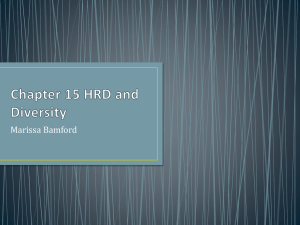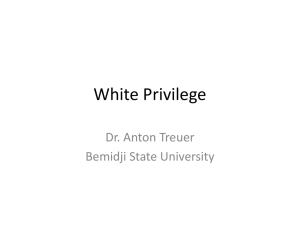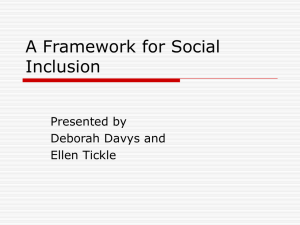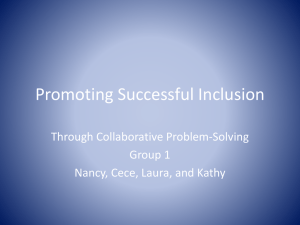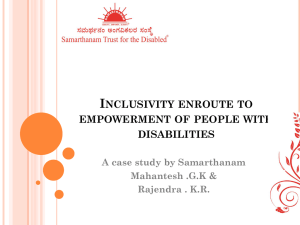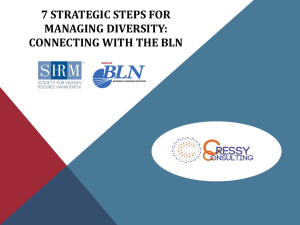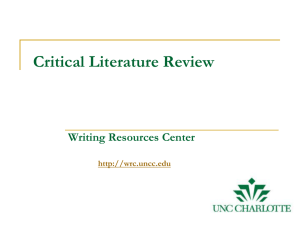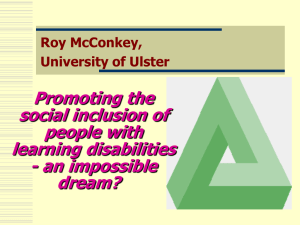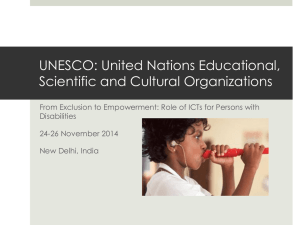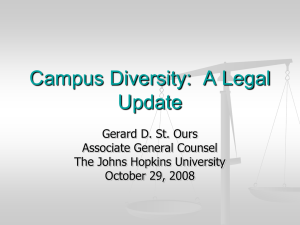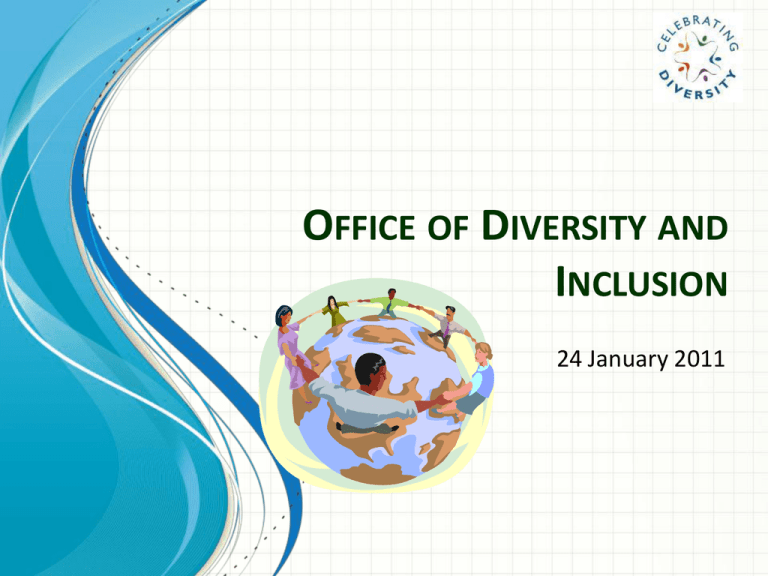
OFFICE OF DIVERSITY AND
INCLUSION
24 January 2011
Diversity Quiz
• 1. The main issue for people with disabilities
with regard to the workplace is?
• a. Accommodation
• b. Coworker discomfort
• c. Getting the interview
• d. All of the above
Diversity Quiz
In a survey by Korn/Ferry International of 1,362
Fortune 500 executives, what percentage were
women and what percentage were racial
minorities?
• a. 2% women / 1% racial minorities
• b. 10% women / 5% racial minorities
• c. 20 % women / 10% racial minorities
Diversity Quiz
In 1998, using the official definition, 38.6
million people were classified as poor. Most
poor people in the U.S. were:
• a. Caucasian
• b. African American
• c. Hispanic
Diversity Quiz
17. The U.S. Census Bureau predicts that by the
year 2004, the average worker will be how old?
• a. 47
• b. 32
• c. 41
Diversity Quiz
10. How many languages are currently
estimated to be spoken in California?
• a. 39
• b. 57
• c. 80
Changing Demographics
• The last 25 years have brought many
demographic changes to the United States,
• “The U.S. is getting bigger, older, and more
diverse.”
• The United States, the third most populous
country globally, will double its population by
2050
Changing Demographics
• The US is Getting Older
• The population age 55–64 years
of age, is projected to be the
fastest growing segment of the
adult population during the next
10 years.
• Between 2004 and 2050 the
population 65–74 years of age
will increase from 6 to 9 percent
• The population 75 years and over
will increase from 6 to 12
percent.
• By 2040 the population 75 years
and over will exceed the
population 65–74 years of age.
Changing Demographics
Minorities, about one-third of the U.S. population,
are expected to become a majority by 2042
Hispanics, including
immigrants and their
descendants as well as
U.S.-born residents
whose American roots
stretch back
generations, are
expected to account
for the most growth
among minorities.
The black and Asian
populations are each
expected to increase
about 60 percent,
with the black share
rising from 14 to 15
percent by 2050 and
the Asian share
jumping from 5 to 9
percent
The number of
people who identify
themselves as being
from two or more
races is also
expected to grow,
more than tripling to
16.2 million, or 4
percent of the
population.
Washington Post - 2006
By contrast, the nonHispanic, single-race
white population is
expected to grow by
less than 2 percent,
reducing its share of
the overall
population from 66
to 46 percent.
Diversity Challenge
Diversity is “the collective mixture of
differences and similarities wherever you
might find them”
Managing Diversity –
a Changing Dynamic
• Managing diversity is
more than simply
acknowledging differences
in people.
• It involves recognizing the
value of differences, and
promoting inclusiveness.
Office of Diversity
and Inclusion
• The position of
Chief Diversity
Officer filled in
October 2010
• The Office of
Diversity &
Inclusion created
November 2010
• Charged with strengthening
the University tradition of
• diversity by developing and
implementing a strategic
and integrated approach to
• advancing a University-wide
climate that respects, values
• and supports the academic,
social and personal
development of
• diverse faculty, staff and
students.
Office of Diversity and Inclusion
Primary Focus
• Review and revise where
appropriate
– sexual harassment
– anti-discrimination
grievance procedures
• Develop and deliver
Sexual Harassment
training
• Review and revise where
appropriate search
process
• Review and revise the
University Affirmative
Action process to ensure
compliance with federal
regulations
• In collaboration with the
University Diversity
Committee and Council
develop a diversity
strategy
Office of Diversity and Inclusion
Sexual Harassment Training
• Consider the laws that
prohibit harassment
• Recognize the specific
forms of harassment
• Know who can commit
harassment
• Recognize who can
experience harassment
• Understand under what
conditions harassment
can occur
Office of Diversity and Inclusion
Search Process
• Continue to ensure search
committee diversity
• Ensure outreach strategy is
submitted by hiring
Manager/Search Committee
is submitted to Office of
Diversity and Inclusion prior
to position posting
• Monitor candidate pool for
diversity prior to selection of
applicants for interview
• Monitor for diversity in the
final selection process e.g.,
finalist pool.
• Evaluate effectiveness of
outreach efforts.
• Encourage the utilization of
Interview Exchange
• Ensure hiring manager\search
committee compliance with
the capturing of required AA
data when Interview
Exchange is not utilized
• Automate Self
Identification process
• Automate the capturing
of applicant flow
information
Office of Diversity and Inclusion
AA Process
Internal Dissemination of the
University’s Affirmative Action
Plan, EEO and antidiscrimination policies.
• Distribute annually AA plan copies to
the Chancellor, Senior Officers,
Department Chairs and Program
Directors.
• Develop and deliver AA training.
• Implement annual University-wide
communication (Broadcast to UMASS
Boston) of the Board of Trustees and
Chancellor Statement on Affirmative
Action and Equal Opportunity.
External Dissemination of AA
Commitment
• Ensure continued commitment to
Affirmative Action and diversity through
print and electronic media.
• Include messaging of individuals with
disabilities and veterans in advertisements
and publications.
• Revise affirmative action\diversity website
to include revised diversity, affirmative
action, equal opportunity statements.
• Review and revise where appropriate the
University’s reasonable accommodation
process for faculty, staff, students and
visitors to the campus.
• Position website as a standalone with
increased diversity related messaging
Office of Diversity and Inclusion
Diversity Strategy
• Conduct an assessment of
diversity needs and
develop a diversity
statement and mission.
• Create a clear,
quantifiable, and
achievable diversity and
inclusion strategy
• Communicate the
diversity strategy
throughout the University
•DONE
•QUESTIONS
“How far you go in life depends on your being
tender with the young, compassionate with
the aged, sympathetic with the striving and
tolerant of the weak and strong. Because
someday in your life you will have been all
of these.”
Washington Carver

